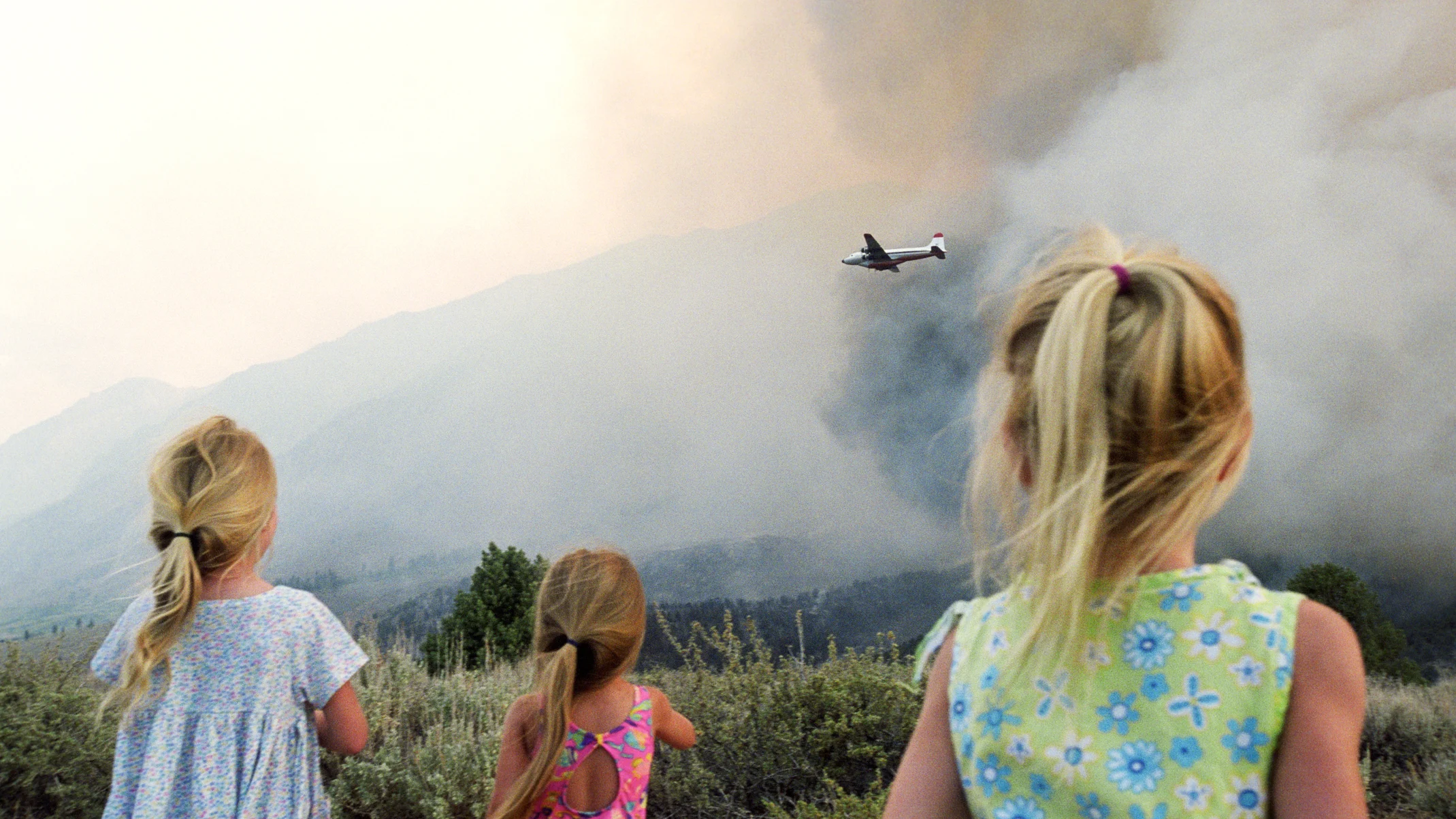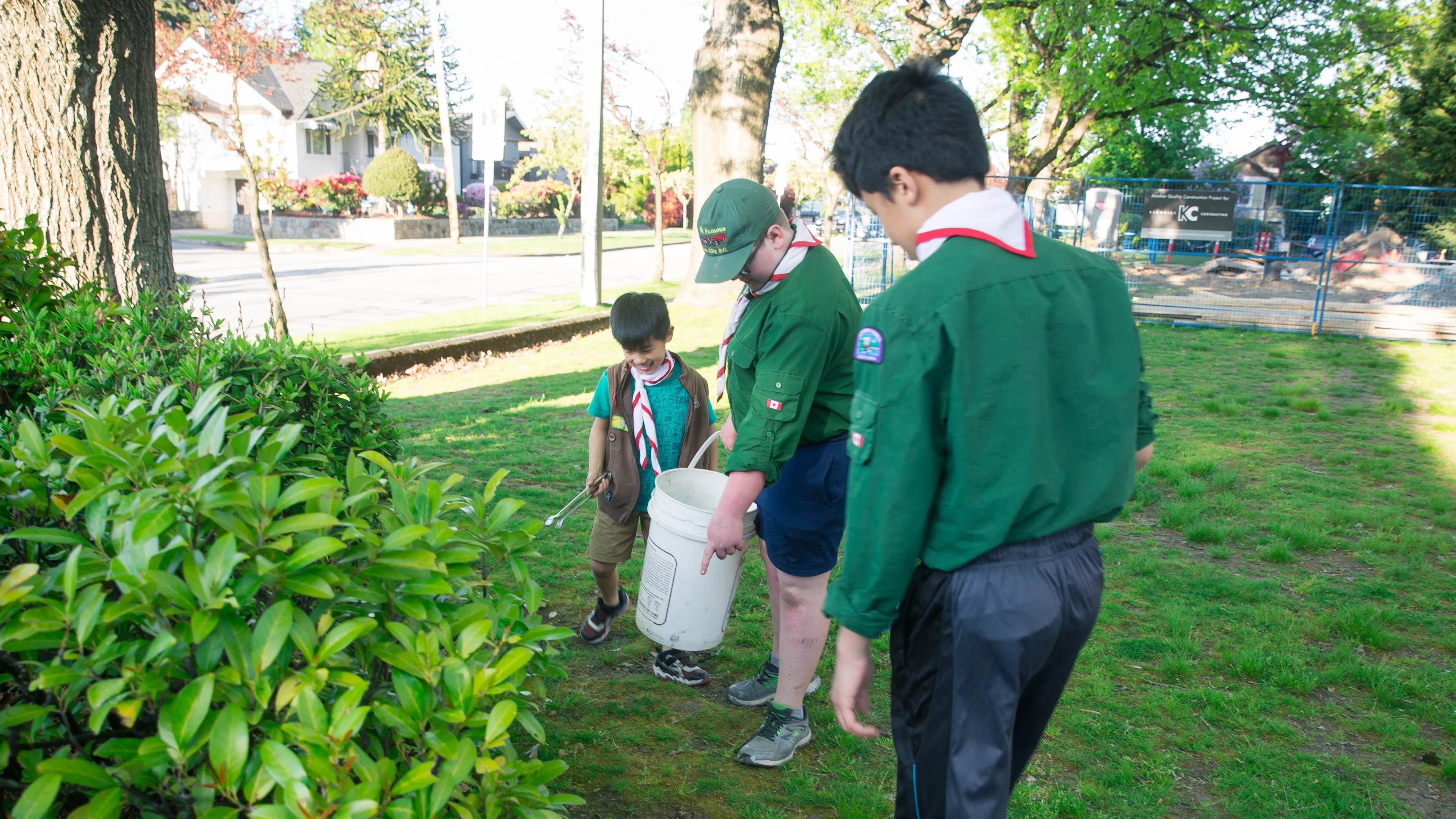
How climate change turns summer into a real bummer for Canada’s youth
Canadian parents can remember the easy summers of the past. But for the younger generations, what used to be a time for socialization and sport is turning into a time of stress and screens due to extreme weather.
Sophia Killawee can recall the first time she saw the effects of climate change.
It was a few years back at summer camp. Her bunk had a skylight over it and, one morning she woke up and saw the sky had turned orange from wildfire smoke. Later, ash began filling the air.
“I thought the world was ending.... And it kind of was ending, in a way,” she told The Weather Network.
Now a high school student in British Columbia and a member of Scouts Canada, she’s seen how smoke, heat, and extreme weather can keep young people from enjoying the outdoors in the summer. In recent years with increasingly dangerous summers in Canada, her troop has had to cancel outdoor events, such as hikes, due to wildfires. Plus, it limits the skills that younger scouts can learn.
“There are certain areas you can’t go to, as well as certain activities you can’t do,” she said.
READ MORE: Why heat waves and power outages are such a deadly combination in some cities
It’s not just scouts either. For youth across Canada, summer break is a time to get outside, learn about nature, and socialize with their peers. But climate change is making that hard — on some days it’s impossible. A bummer, to be sure, this is bad news for their physical and mental health.
According to Scott McRoberts, a researcher at the University of Guelph’s department of Athletics, extreme heat events are causing sports matches to be cancelled, including the sports that youth play outside in the summer months. There are other risks as well, such as smoke from wildfires, flooding from extreme storms closing down grass fields and lightning.
Additionally, physical activity like sports can bring structure to kids during the summer months. If climate change continues, more youth may end up spending time indoors in front of screens.
He said many youth sports stopped during the pandemic years. As such, their mental and physical health took a hit. Climate change could have a similar impact.
“Kids need to be outdoors, and it’s part of ... the long-term physical development of kids to be outside and experience all the different aspects of what the outdoors brings.”
The ‘very basic right to play is at risk’
Since 2018, Children First Canada has been putting out reports about the top risks to youth in the country. In 2022, the groups Raising Canada report listed climate change in the top 10 for the first time.
Sara Austin, founder and CEO of Children First Canada, said the organization also regularly hears from youth from across the country about how climate change is harming their health.
She said the number of low air quality days increased this summer, meaning more days where kids experience asthma symptoms. According to the federal government, climate change accounts for 2.7 million asthma symptom days and 35 million other respiratory days per year.
“Summer is an essential time of childhood. It is a time when they should be playing and engaged in recreation. It's really a time for young people to be out in their community and involved in recreational programs, [in] many different forms, and we're finding that children's very basic right to play is at risk because of the impacts of climate change,” she told The Weather Network.

As part of their environmental mandate, members of Scouts Canada do cleanup events. A scout troop is seen here doing one such event in Vancouver. (Scouts Canada)
In a 2021 paper, associate professor Paquito Bernard at the University of Quebec in Montreal’s department of human kinetics investigated with his colleagues how climate change impacts physical activity. The team performed a systematic review of existing literature, ultimately paring their results down to 74 papers. From these, the team identified natural disasters, air pollution, and extreme heat as notable barriers keeping people from staying active.
However, he added physical activity is vital for human health, even when the air quality is poor or there’s extreme heat. Finding ways to stay active even when the effects of climate change are in full swing is important. Bernard said this can include performing shorter bouts of physical activity when it's hot out.
“The balance between benefits and risk will always be positive,” he told The Weather Network.
READ MORE: 'A vicious cycle:' green active transportation gets harder with climate change
McRoberts suggested some other solutions to help youth stay active during a particularly hot summer. More breaks during games should help students avoid exhaustion, heat cramps, or even heat stroke, he said. Additionally, cities should pay more attention to shade when building structures in outdoor areas, in part so kids have a place to cool down.
But children from different social and economic backgrounds are also likely to feel these effects differently. According to Austin, in urban communities where kids play at parks and recreation centres, resource-poor communities are less likely to have indoor facilities for when it’s smoky out, or parks that have structures that offer shade for when the temperatures reach dangerous levels.
An added challenge, she said, is access to nutritious food, particularly during periods of extreme heat and strenuous outdoor activity. Heat waves, for instance, can damage crops and grazing land for livestock, increasing the cost of food, which is a bigger problem for lower-income households.
‘It makes it harder to lose’
Nova Scotia-based father Darryn Steeves remembers summers very differently. He and his friends spent the time outside.
“We would have been outdoors ‘till the lights came on in our generation … It was great just to run wild in the summers,” he told The Weather Network.
But this was 30 years ago or so. Now, summers come with new precautions, like being aware of heat exposure, the increase in Canada’s tick population and “all the things you need to do to keep yourself protected and safe there today, compared to simply running out the back door," he said.
But it’s not just a matter of physical health either. According to a recent paper, 78 per cent of 1,000 youth (aged 16 to 25) interviewed reported that climate change has had an impact on their mental health. Plus, summer is an important time developmentally and socially.
Steeves’ daughter Rae is a Children First Canada youth representative. She said she has seen an increase in temperature, leading to more ticks in the region, and a more intense hurricane season in Atlantic Canada (that runs from June to November).
The Steeves family owns a cottage in Atlantic Canada, and it’s “really nice to be around that kind of nature,” she told The Weather Network.
But being there is something of a double-edged sword, as it’s nice to be around nature.
“But then it also kind of adds to a fear that it’s going away," she said. "Like when you realize how beautiful something is, it makes it harder to lose it.”
According to Rhéa Rocque, a research associate at the Prairie Climate Centre, summer is a time where youth see and connect with their friends, teammates, and peers. When something disrupts these “fundamental human needs,” it takes a toll on mental health. Additionally, time spent outdoors is one of the best predictors of mental wellbeing. It increases concentration and cognition, lowers stress levels and increases creativity, she said.
“Summer is supposed to be a time of rest, [of having] fun, of connecting with friends and doing activities,” she told The Weather Network.
Without the chance to spend time outdoors, kids might increasingly spend time on social media, which comes with a slew of other mental health problems, such as anxiety, sleep disruption and depression. Additionally, time spent indoors could prevent youth from learning more about the natural world.
“We’re just reinforcing this problem,” Rocque said. “We’re not connected to our environment.”
WATCH BELOW: What parents should know about wildfire smoke and their kids
Thumbnail image: Wildfire smoke dominates the sky as three young girls look on. (Mark Oatney/Getty)







